
Recently, @DumbartonOaks and @JSTOR Labs released the Plant Humanities Lab (lab.plant-humanities.org). We're all eager to share it in loving detail, so here's a thread doing just that. #planthumanities #digitalhumanities #environmentalhumanities 1/x 
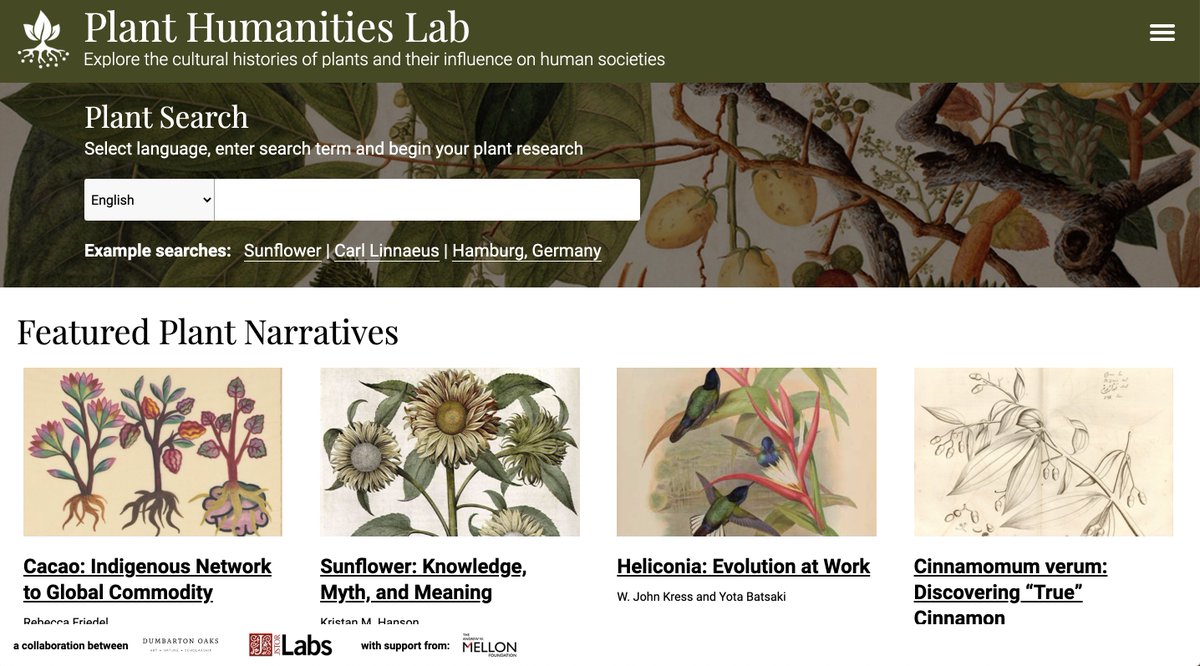
The study of plants' influence on human societies has two interesting qualities that drove the design of this site. First, it is inherently interdisciplinary, stretching from the arts through the humanities deep into the sciences. 2/x
At the workshop that was the inspiration for this project (vimeo.com/254555201), Peter Crane of @oak_spring said, "Interdisciplinarity comes most naturally when you've got a focus: a plant, a place, something concrete that people can bring different perspectives to." 3/x
The second unique quality of this study is that it is deeply rooted (let's count the plant puns, shall we? #1) in primary sources. Botanical illustrations, old herbals, horticultural treatises, plant specimens and more, available @BioDivLibrary, @JSTORPlants and other sites. 4/x
Our goal for this project was to create a site that would support both *guided* tours and *unguided* exploration of primary and secondary resources related to plants' influence, and help users look at and organize those materials through multiple disciplinary lenses. 5/x
These two modes of behavior drove the design of the site.
Guided tours became the site's Plant Narratives. Unguided exploration became the Plant Search. Let's take each in turn. Plant Narratives first. 6/x
Guided tours became the site's Plant Narratives. Unguided exploration became the Plant Search. Let's take each in turn. Plant Narratives first. 6/x
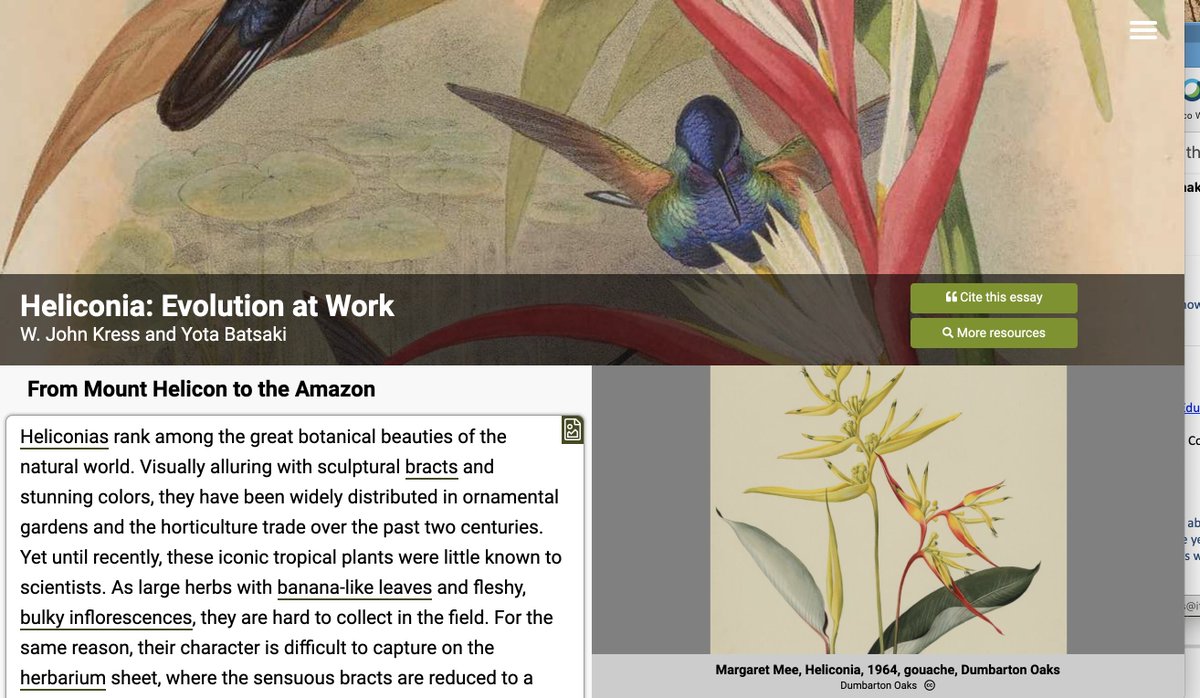
The Plant Narratives, written by @DumbartonOaks fellows and others, are textual essays augmented throughout with images, maps and visualizations that allow an author to add nuance and complexity to their argument, and offer readers a chance to deepen their understanding. 7/x
Images are central to these narratives. Each one is @iiif_io and zoomable. You'll see botanical illustrations, plant specimens, scans of 400-year old herbals, photographs and more. Some come with annotations calling attention to specific elements. 8/x 





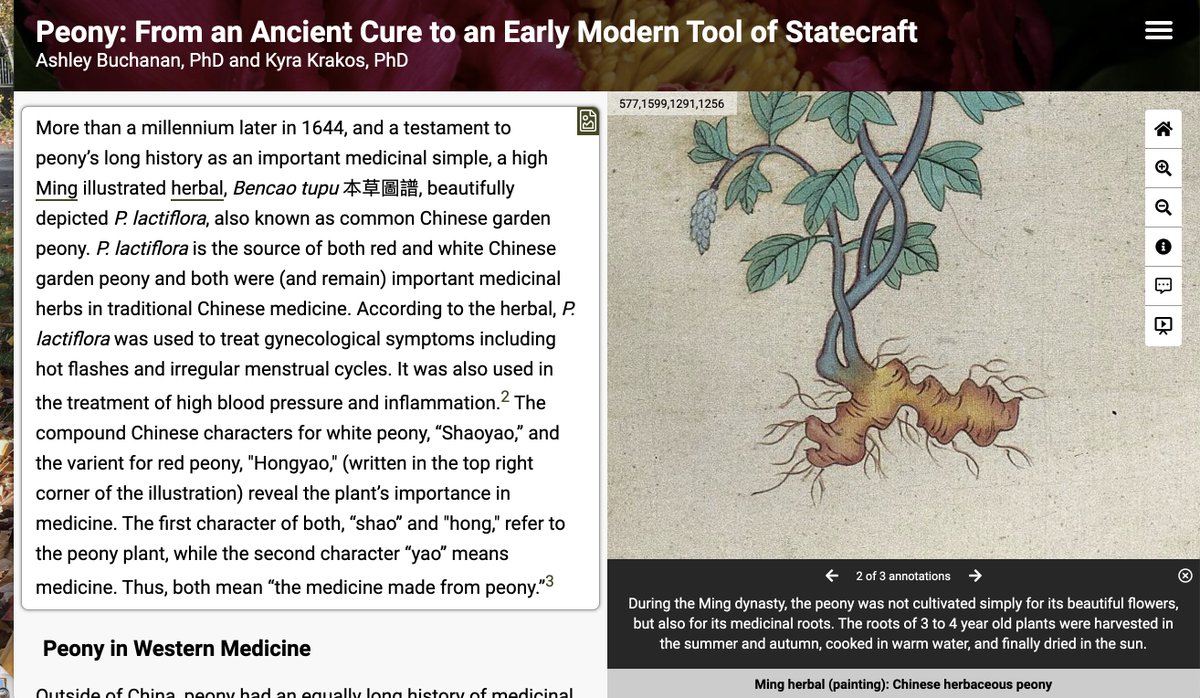

The mobility of plants - whether through human influence or not - is a recurring theme in these essays, and maps help to convey that theme. Maps trace movement and pinpoint locations. There are animated timelapse maps, and historical map overlays. 9/x 






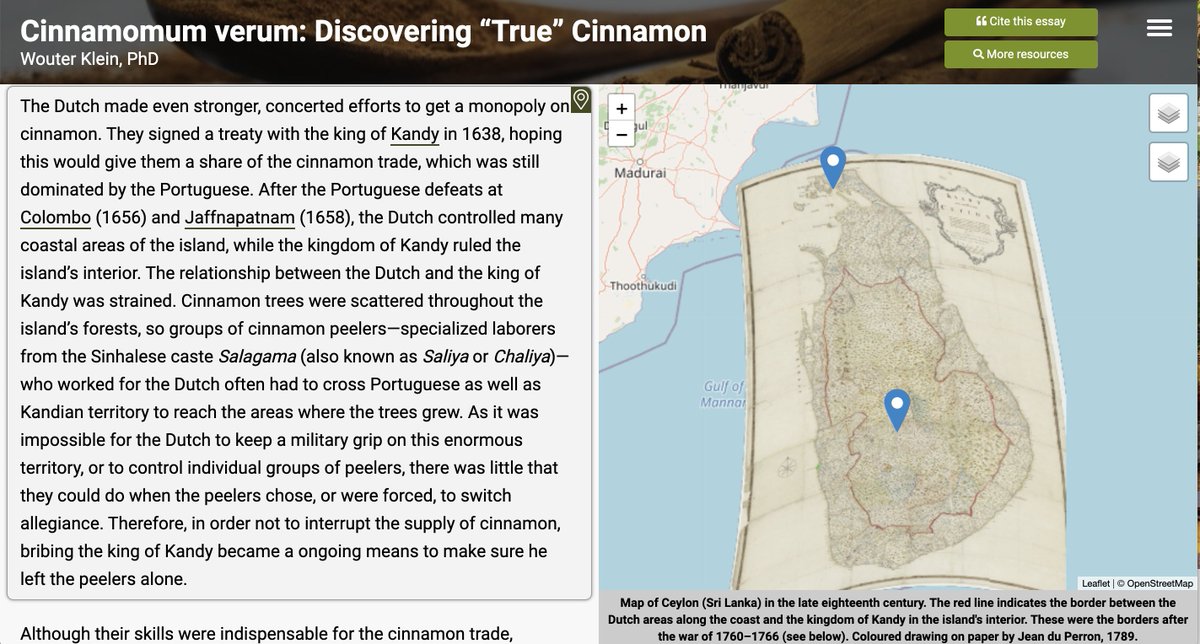
And there is a roster of other components augmenting the paragraphs, including data visualizations (h/t @d3js_org), timelines (h/t to @knightlab's @TimelineJS), videos, tabular data and more. 10/x 







One last thing about these narratives: they are deeply integrated with #linkedopendata #LOD -- references throughout are tied to @wikidata's QIDs, and data from the project's own knowledge graph appear as well. 12/x
The Plant Humanities Lab is the flagship use of Juncture, a tool @JSTOR Labs will release as open source later this spring, which will allow users to create their own visual and interactive essays about any topics whatsoever (not just plants). 11/x 

I'll write more about Juncture when we release it, but suffice to say I think Juncture will allow the seeds of the Plant Humanities Lab to spread deep into other areas of study. (plant pun #2 - hm, i'm showing much more restraint than usual...) 12/x
On to the second major feature, this one in support of unguided exploration of plants' influence on human societies: Plant Search. 13/x 

Plant Search is a #linkedopendata #LOD-native tool for research. It presents a plant-oriented window into the wealth of data available in #wikidata and related primary and secondary sources from places like @JSTORPlants, @JSTOR, @Artstor, and @BioDivLibrary. 14/x
This is not your father's full-text search. Users search on any term in @wikidata at all - as you type the form will suggest disambiguations. 15/x 
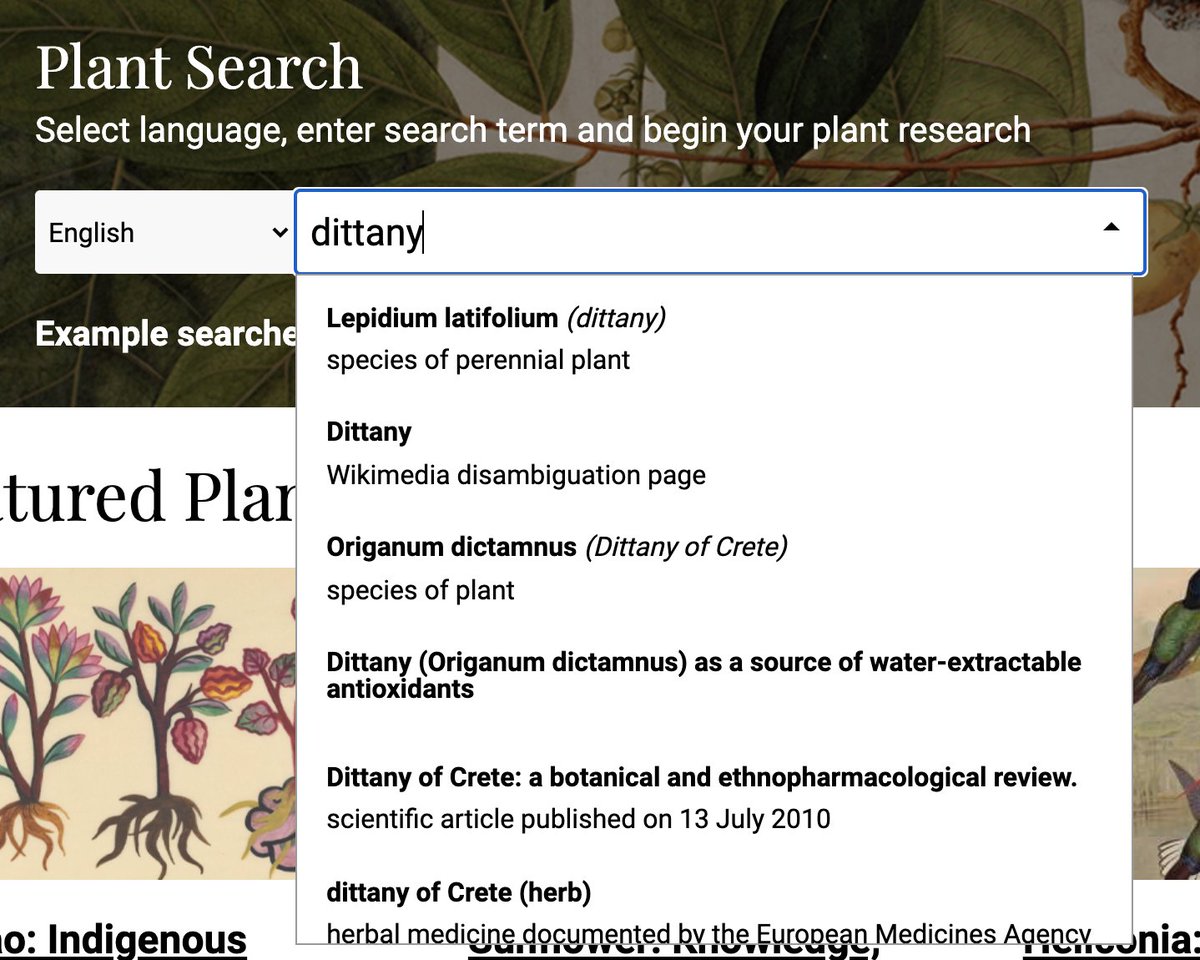
Results pages bring together data from @wikidata, @wikipedia and other resources, with summary information above and additional, categorized data and links below. 16/x 
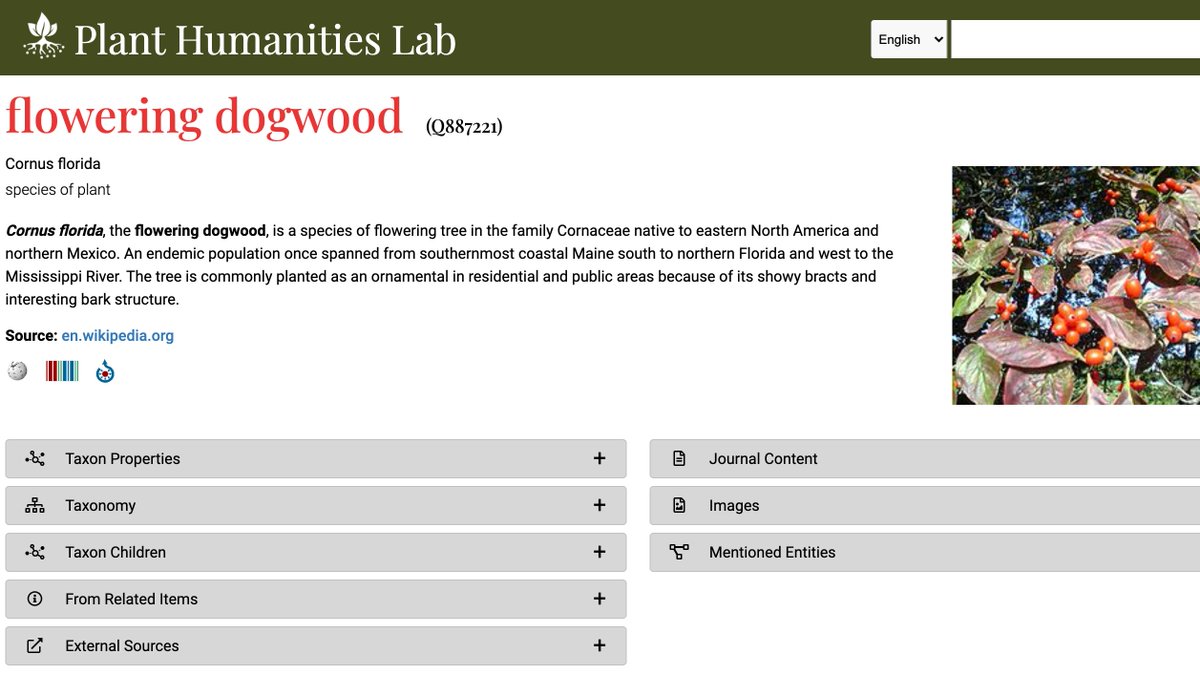
When the result is a plant, there are extra features, including plant specimens of this species from @JSTORPlants, taxonomic data and the ability to browse up and down the taxonomic tree. 17/x 





All of this stands on shoulders of those creating #LOD, and is a testament to the power of open. To pick just one example, it's a simple click to go from the Flowering Dogwood Plant Search result to the page in @BioDivLibrary where Linnaeus defined the taxon. 18/x 



But wait, there's more. On the right are components linking out to primary and secondary resources about this entity or term. You'll see relevant articles in @JSTOR and @wikidata, and images from @Artstor, @BioDivLibrary, @creativecommons and @wikidata. 19/x 

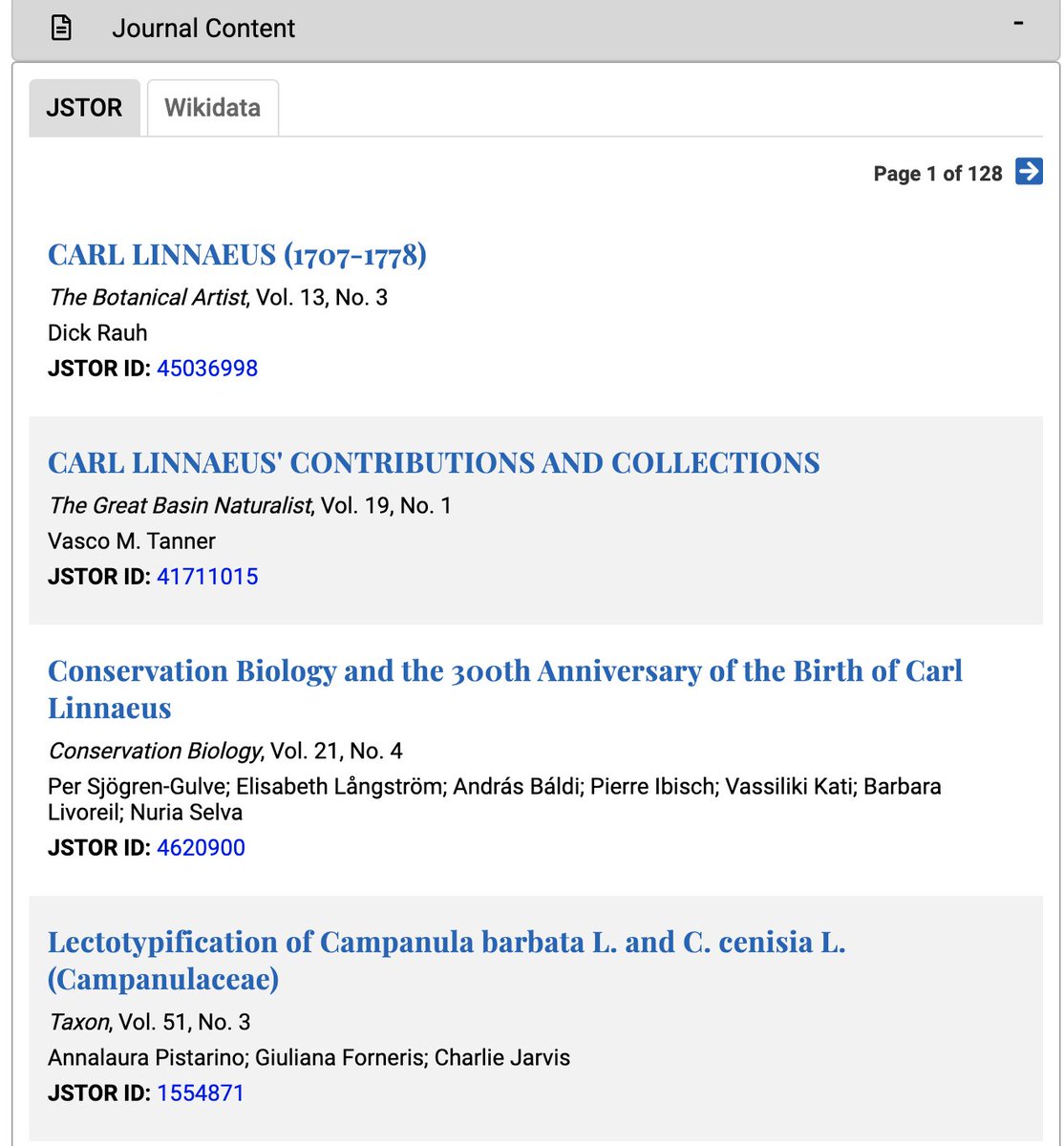
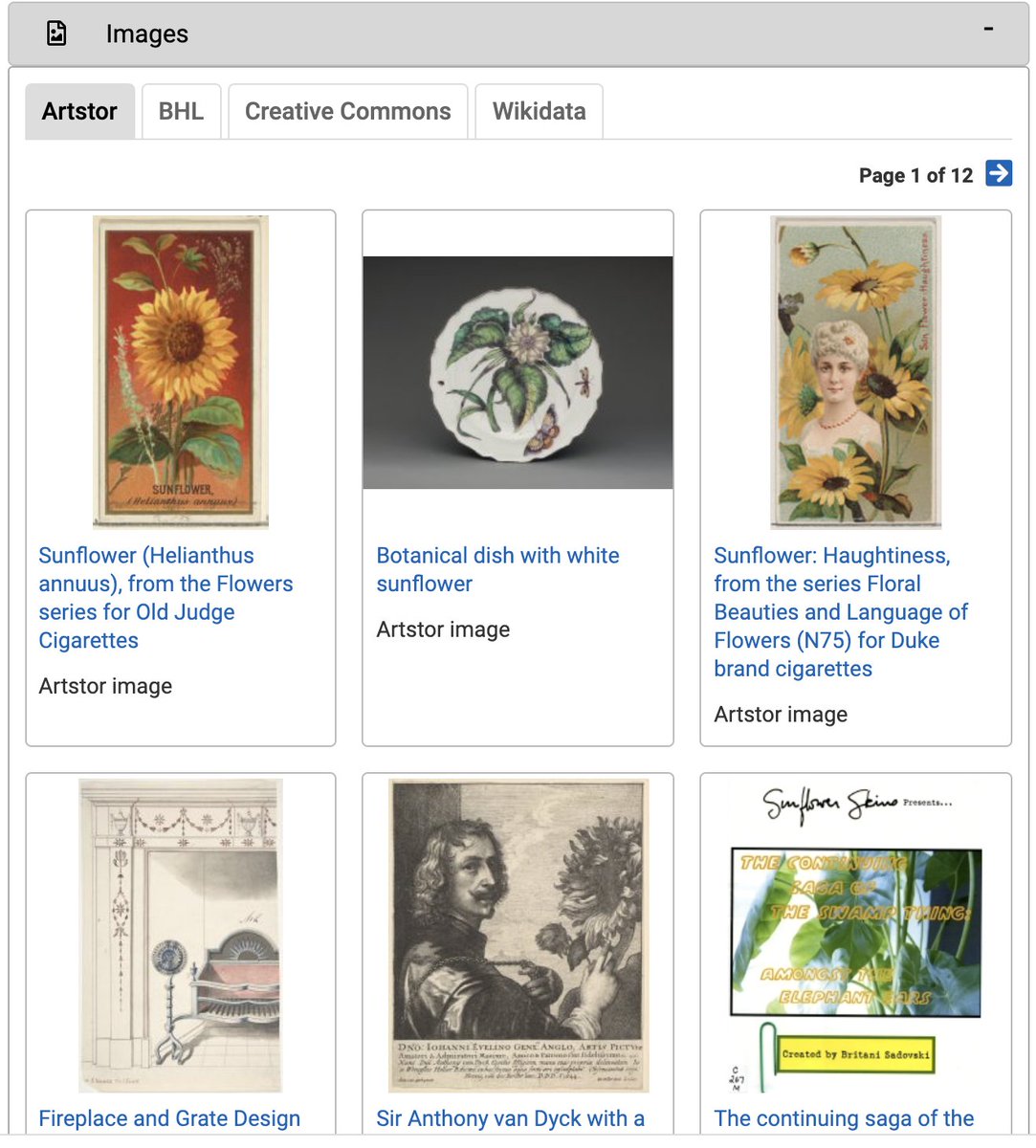
(There's opportunity for more integrations via APIs and linked open data, but that's what we have so far. If you have suggestions for more data or integrations, let me know below!) 20/x
Finally I should flag that while it's CALLED Plant Search it's secretly an Everything Search. Go ahead, search for anything: Search for Chicago, IL or the band Chicago. Search for Fannie Lou Hamer (no, really, you should, she's amazing). You'll find results. 21/x
It's a Plant Search just because there's specific features (specimens, taxonomic tools, etc.) that appear when you get to a plant. 22/x
Okay, I'm done. Like all @JSTOR Labs projects, the Plant Humanities Lab (lab.plant-humanities.org) is still very much a work in progress - we and our @DumbartonOaks partners are eager for any and all feedback you might have on it. 23/x
Thanks for sticking with this thread, and we hope you enjoy the Plant Humanities Lab. May it help a thousand knowledge-flowers to bloom (#3). 24/x
• • •
Missing some Tweet in this thread? You can try to
force a refresh


